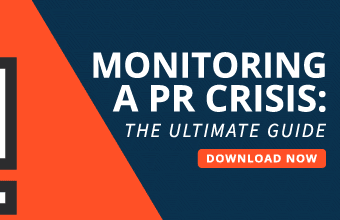The #MeToo movement has many faces. It’s a fight about consent, about gender relations, and about the ways money can act as a shield, but that’s not all. From a public relations perspective, #MeToo is about the power of an individual’s reputation and whether, having been publicly shamed, they can—or should—return to their former stature. This aftermath has been particularly valuable for what it can teach about how we talk about assault when someone’s personal and professional reputation is on the line.
The #MeToo comeback
We’re now firmly a few years into the #MeToo movement, and while the discourse around sexual assault continues and new accusations continue to come to light, for those men whose fall from grace occurred months or even years ago, the temptation to come back is high. Some, like Aziz Ansari, are taking a “go big or go home approach” to their return. After circulating a bit on the comedy scene, Ansari returned with a Netflix special, a risky PR move for both the comic and the streaming platform.
Though Ansari’s special “Right Now” directly grapples with his experience as a subject of the #MeToo movement, the overall response has been mixed, particularly with the press and viewers. Crisis management experts, on the other hand, felt he handled his return perfectly by hitting the three Cs of crisis communication—compassion, confidence, and competence.
Advocacy beyond the crisis
The celebrities who have become the central villains of the #MeToo discourse have access to huge teams of publicists, PR professionals, lawyers, and to the press, all of which is a major advantage when it comes to staging a strategic comeback. In fact, this kind of access is what makes it so surprising when things go disastrously for a major public figure, such as in the wake of Larry Baer’s domestic violence case. Where was his crisis management team? He certainly had the resources and status to hire one, yet there he was making a mess of the situation without any professional help.
Of course, for the average person facing a criminal assault charge, protecting your reputation starts with an aggressive legal defense. A great lawyer can protect how much the press learns about your case and control the messaging, all while navigating the courts. They’re your personal crisis management team, though if you hold a prominent business position or otherwise have the public’s attention, you may need to seek PR support as well.
Shame, blame, and the Internet Age
Perhaps more than any other recent movement, #MeToo has created a climate of fear – both of being publicly shamed for past bad behavior and of acting improperly in the current moment. For college students, this might mean taking consent seriously, while famous individuals with skeletons in their closets are more concerned with covering their tracks. In either case, though, there’s an acute awareness that the internet never forgets. If your public wrongdoing is reported somewhere, it’s online for all time.
While the EU has been grappling with a concept known as “the right to be forgotten”—essentially the right to have records of your past erased from the internet—few American publications would even consider this possibility. We live with our pasts forever, which is why we have to handle crises appropriately in the present. Whether that means hiring a lawyer or assembling a “war room,” the past lives on online and, as the #MeToo movement makes clear, making a comeback is harder than ever before.








